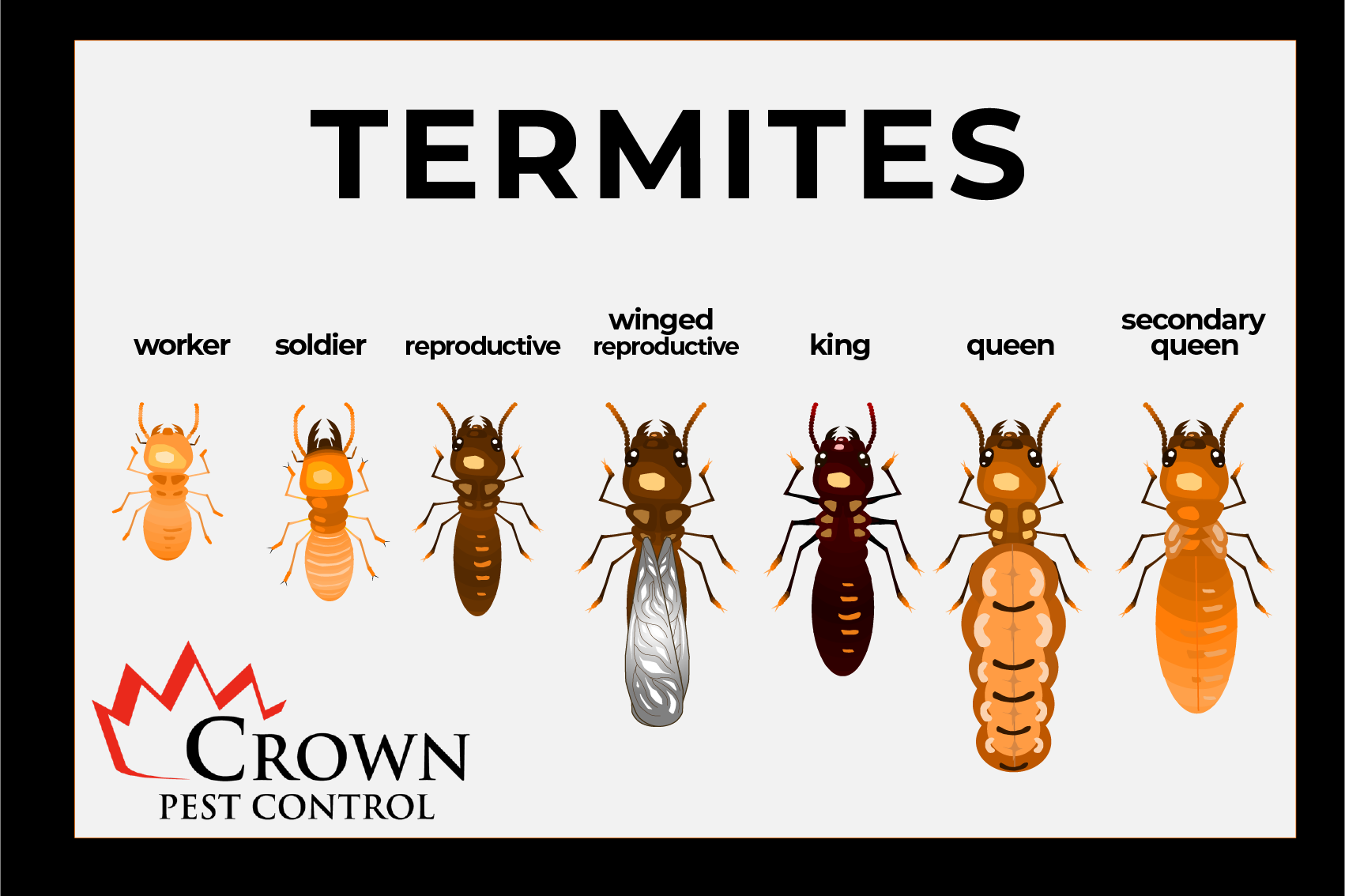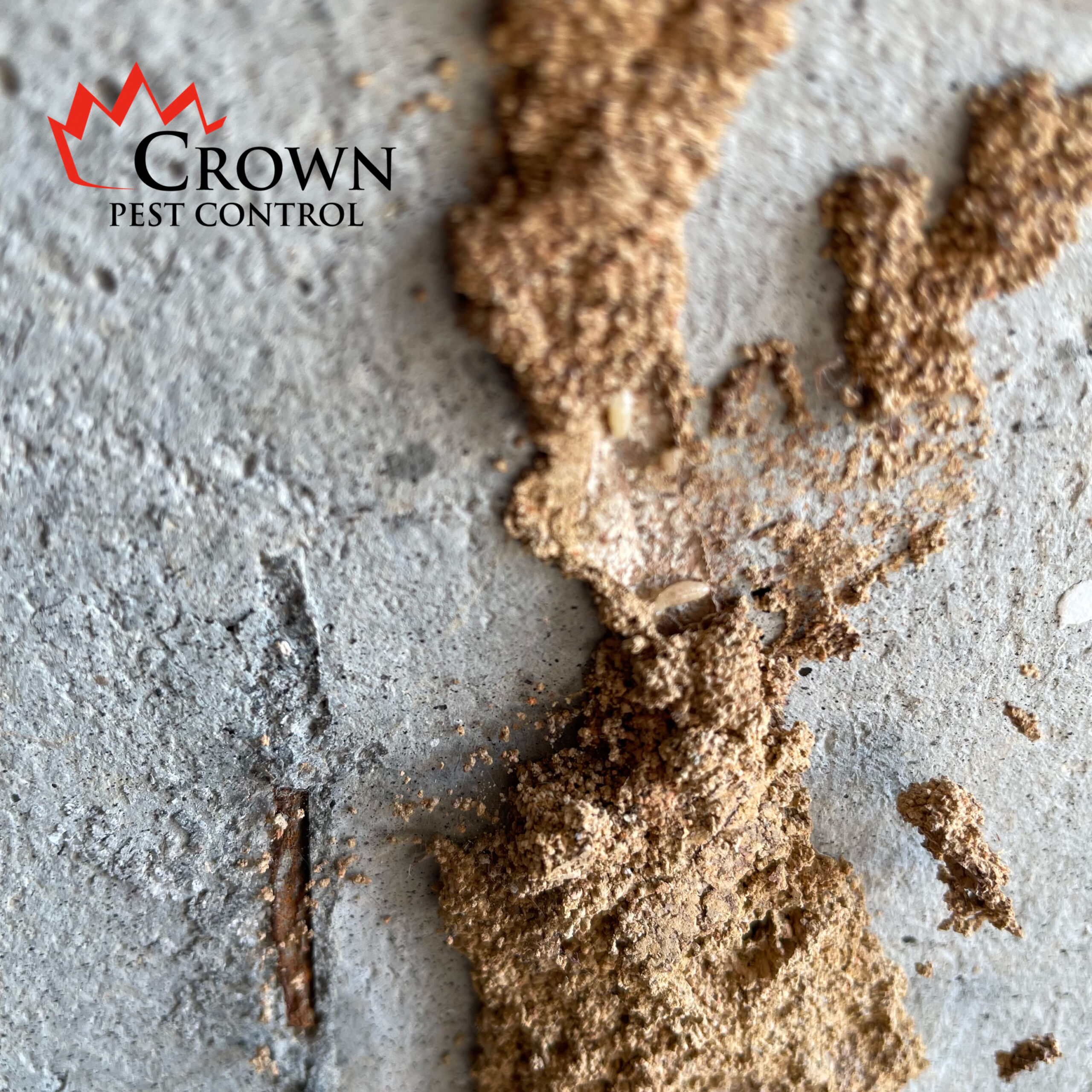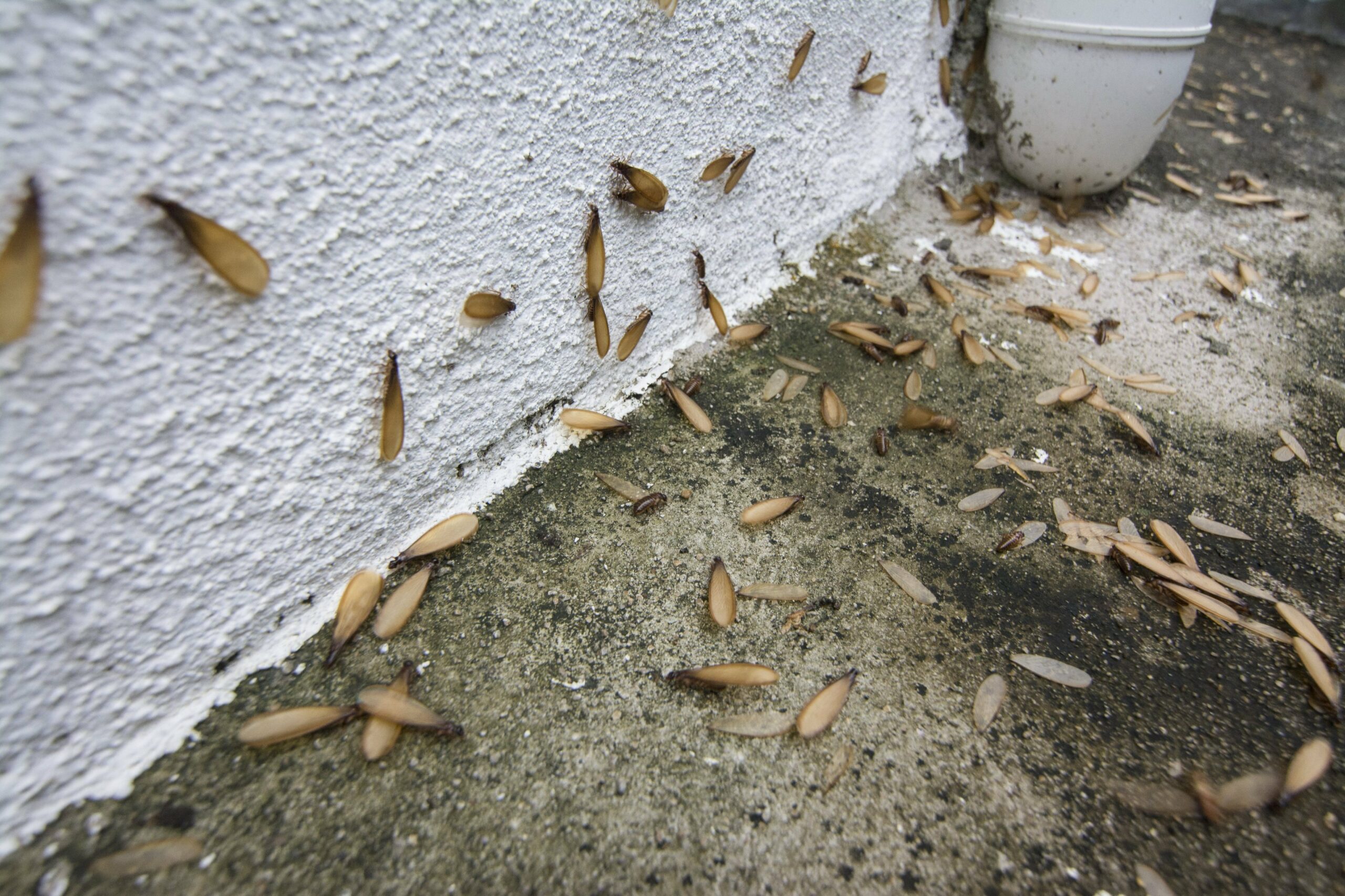Take Control of Your Home Today
Termites
Protect Your Home with Charlotte’s Termite Experts
Crown Pest Control offers advanced termite protection using Trelona ATBS Stations—proven to be more effective and faster at attracting termites than other systems. Discreetly installed and highly reliable, our local team uses the latest technology to safeguard your property. Call today for a free consultation.
Crown Pest Termite Control
Crown Pest Control
Crown Pest Control is your local pest control professional in Charlotte, NC. Our team provides top-notch termite control services to residential and commercial clients. We understand the damage termites can cause, so we offer effective solutions to eliminate these wood-destroying insects from your property.
As a top provider of pest management services, Crown Pest Control uses the Trelona ATBS Termite Baiting System as one of its most efficient termite control methods. With the help of this cutting-edge system, termite infestations can be targeted.
Understanding the Termite
Subterranean Termite
Subterranean termites are the most common type of termites found in Charlotte, NC. These termites live in colonies underground and can cause significant damage to wooden structures. If you notice mud tubes on your walls or foundation, you likely have a subterranean termite infestation. Our team can provide comprehensive termite inspections to identify and eliminate these pests from your property.

Subterranean termites are a diverse group of insects with various roles within their colonies. Workers are the backbone of the termite colony, responsible for gathering food and feeding other members. Soldier termites, distinguishable by their large mandibles, serve as protectors, defending the colony from threats. Reproductive termites, also known as alates, are responsible for starting new colonies. Winged reproductive termites, both male and female, take flight during certain times of the year to mate and establish new colonies. The king and queen termites are the original founders of the colony and play a significant role in reproduction. The queen is capable of laying thousands of eggs daily. Secondary queens may also emerge in mature colonies to aid in reproduction and colony expansion. Each type plays a unique role, contributing to the survival and growth of the termite colony.
What is a Mud Tube?
Termites build termite mud shelter tubes as a means of protection and to maintain a moist environment as they travel between their underground nests and food sources. These tubes typically contain soil, wood particles, termite saliva, and feces. The termites construct the tubes by depositing these materials and using their saliva as a binding agent.
Mud tubes are an important sign of termite infestation. Suppose you come across such tubes on or around your property. In that case, it’s essential to call us for a termite inspection and treatment, as they indicate an active termite presence and potential damage to the structure. Prompt action can help prevent further infestation and damage caused by subterranean termites.

Termite Eggs
Termite eggs are tiny, oval-shaped, and translucent. They are usually white or cream and are barely visible to the naked eye. Termite queens, the primary egg layers in the colony, can lay thousands of eggs daily. The colony workers care greatly about tending to the eggs, typically laid in specialized chambers.
Termite Larvae
Once the eggs hatch, they give rise to termite larvae. The larvae are pale and worm-like in appearance. They lack developed eyes, wings, and legs. During this stage, the larvae depend entirely on the workers for their nutrition and care. The workers feed the larvae regurgitated food, primarily cellulose-rich materials like wood and plant matter. Their need to feed the larvae wreaks havoc on wood structures. Our team can provide effective treatment options to stop termite larvae and prevent further damage to your property.
Termite Swarms
Termite swarms are an intriguing and unnerving aspect of termite behavior. This only happens in mature colonies that have existed for at least five years. These mature colonies produce winged termites, also known as alates or swarmers, which are reproductive individuals tasked with establishing new colonies. Typically, on warm, humid days following rain, the winged termites take to the skies in what is known as a termite swarm. The swarm is an awe-inspiring sight, often comprising thousands of winged termites intent on finding new territories for expansion. Spring time is the time of year when the termites swarm. They usually start swarming in mid March through April. It could start earlier or go later. This process forms a critical part of the termite life cycle and is essential for the species’ survival and proliferation.
However, the sight of a swarm can also strongly indicate a significant termite infestation, which may lead to considerable structural damage if left unchecked. These termites are responsible for starting new colonies, and if you see them in or around your property, it’s a sign of a possible infestation. Our team can provide effective treatment options to eliminate termite colonies and prevent further damage to your property.
5 Ways To Protect Your Home Against Termites
Unfortunately, if you see termites in your home, the damage is already done. The best termite control is to prevent them from attacking your house in the first place. There are various ways to prevent termites on your property, including:
- Keeping wood and mulch away from the wood parts of your home
- Directing water away from your home’s foundation
- Replacing rotted wood in any area of your home
- Removing trunks and dead trees from your property
- Hiring a professional to use professional termite treatment around your foundation
Termites can do extensive damage before you see any signs of it. You can learn more about these wood-destroying insects at the NC State Extension. Don’t wait if you think you have a problem. Schedule a termite inspection in the Charlotte, NC, area to protect your property.
A Pest Control Professional
At Crown Pest Control, we are your local pest control experts in Charlotte and the surrounding areas. Our team has the knowledge and experience to identify and stop a termite infestation on your property. We use the latest techniques and technologies to protect your investment.
Trelona ATBS Stations for Superior Termite Control
Crown Pest Control in Charlotte, NC, proudly offers ATBS Stations. These stations have been proven to be superior when it comes to controlling termites. These are larger than most baiting systems, which makes them more inviting.
In a university study, the ATBS Stations were more effective than Sentricon stations at attracting and trapping termites. (Source: 2012 University of Delaware, Graduate Research Dissertation *Not statistically significant at p<0.05; statistically significant at p<0.10) In the study, 20 replicates were placed within 0.5 meters of an active termite colony and checked daily for 46 days. The results indicated that ATBS Stations led to more effective and faster termite hits than Sentricon stations.
These stations are installed around the perimeter of your home or business with a low profile. The system is buried discreetly in the soil, hard to see for you but easy for termites to find.
If you notice any signs of a termite infestation, don’t wait until it’s too late. Call us today to schedule a free consultation and take the first step in protecting your home from termites.
Crown Pest Control is your trusted partner for all your termite-related issues. We are the best pest control company. With our latest and effective termite defense products, you are sure to have peace of mind. We undergo rigorous training with some of the most advanced equipment in the industry. We are experienced and qualified to access your unique situation, identify the root of the problem, and prescribe the right treatment option for you coupled with maximum protection and minimum inconvenience. Be it hammer drills, sub-slab injectors, rodding devices, termite baiting or soil-applied liquid termiticides, and non-repellent liquid products, our highly-trained specialists are capable to deal with your problem in the most efficient way, customized to your individual needs.
Service Areas
Crown Pest Control is a reputable pest control company and we provide pest treatment services in Greater Charlotte Metropolitan Area, NC, i.e. Matthews, Mount Holly, Indian Trail, Monroe, Waxhaw, Concord, Harrisburg, Huntersville, Fort Mill (SC), Indian Land (SC), Tega Cay (SC), Pineville, Mineral Springs, Mint Hill, Stallings, Dilworth, Ballantyne, Cornelius, Davidson in North Carolina.

